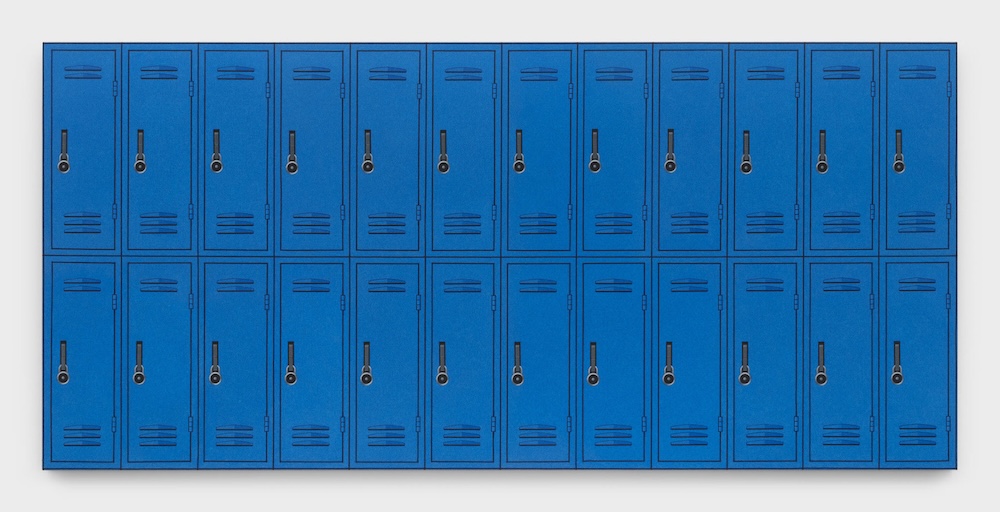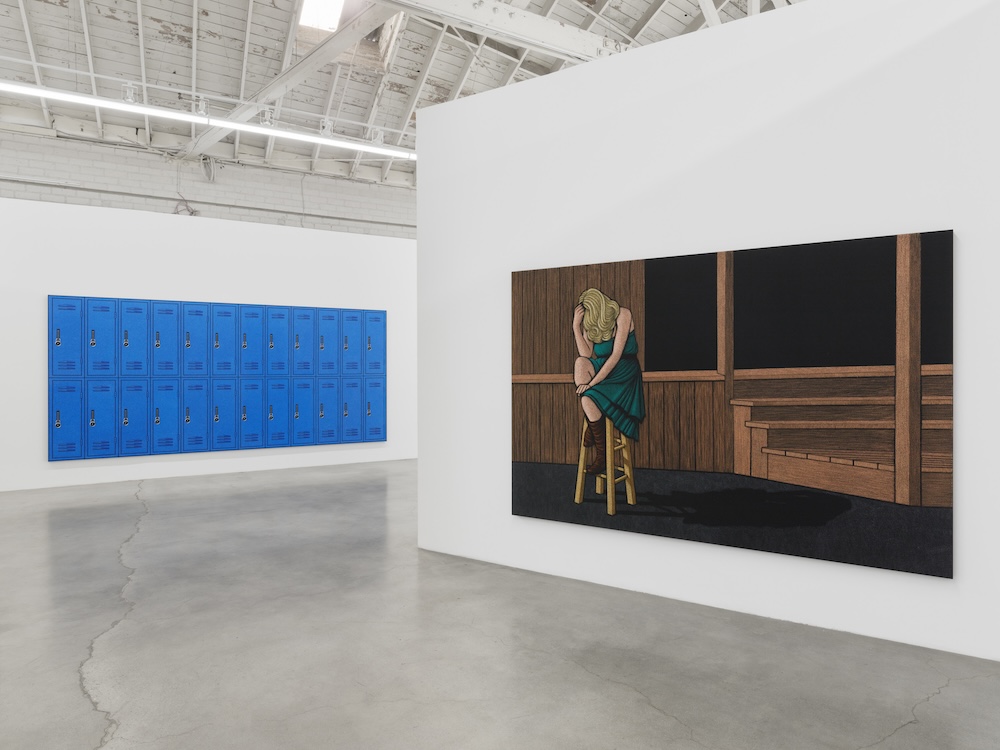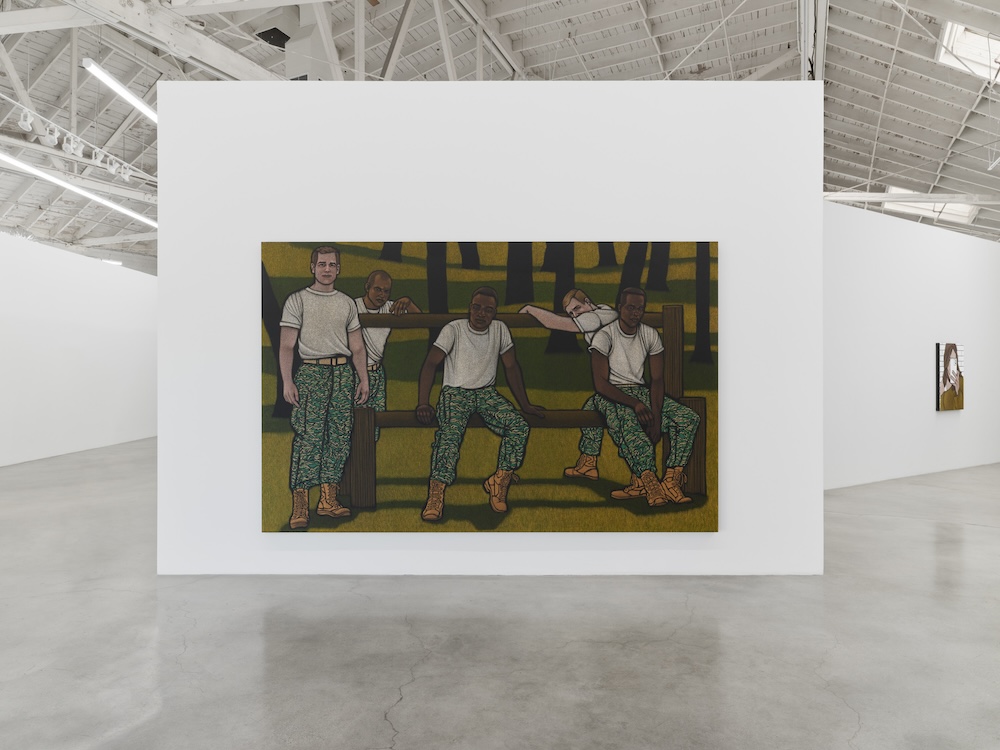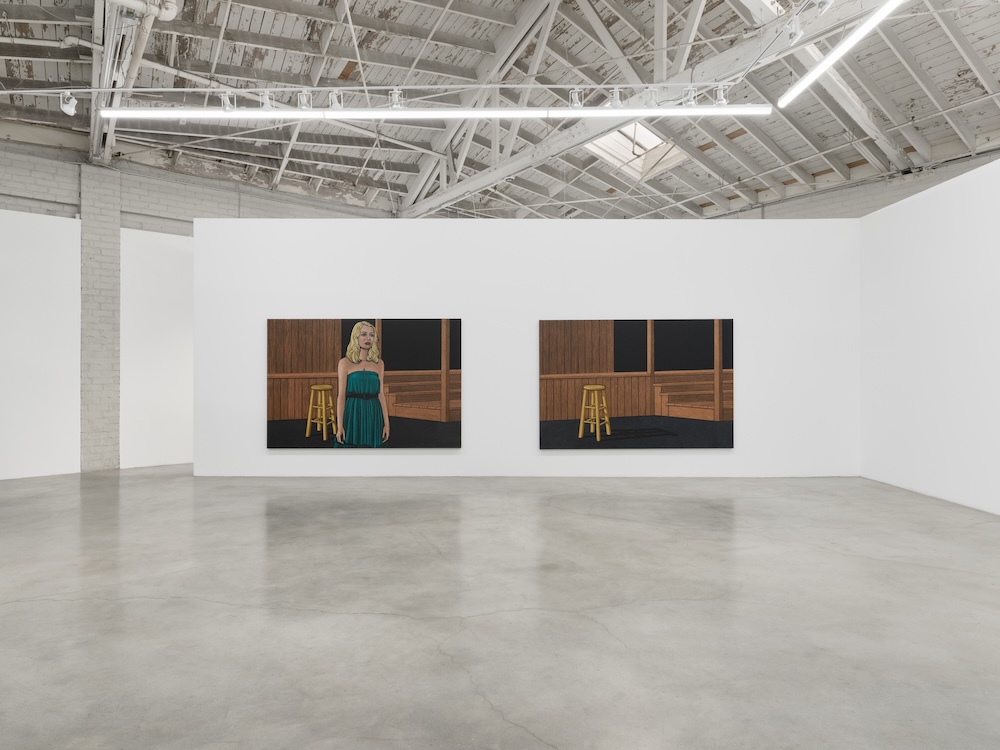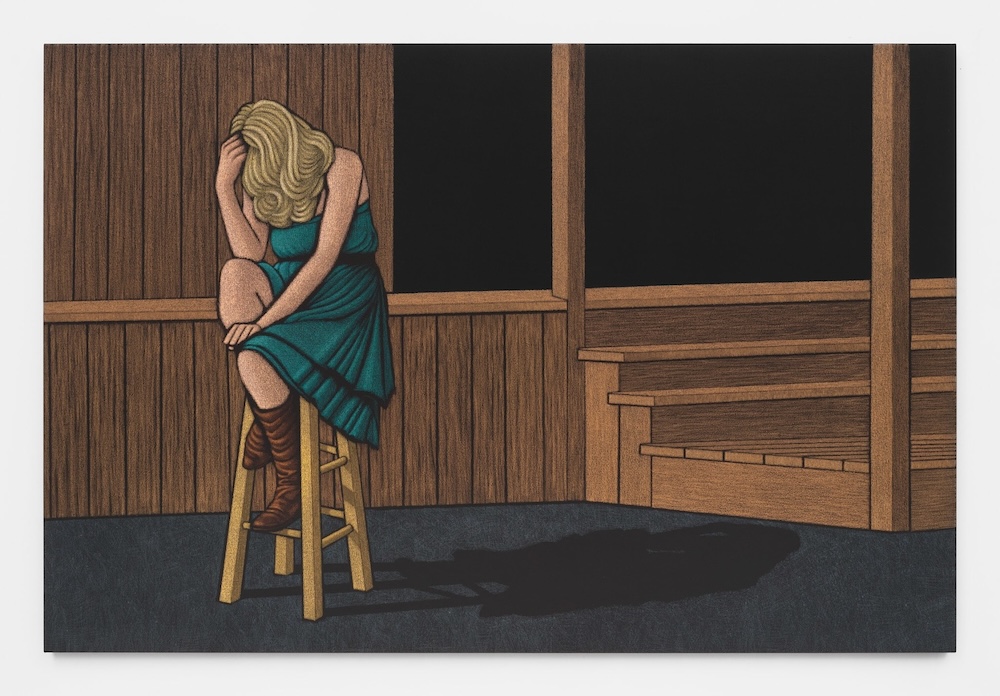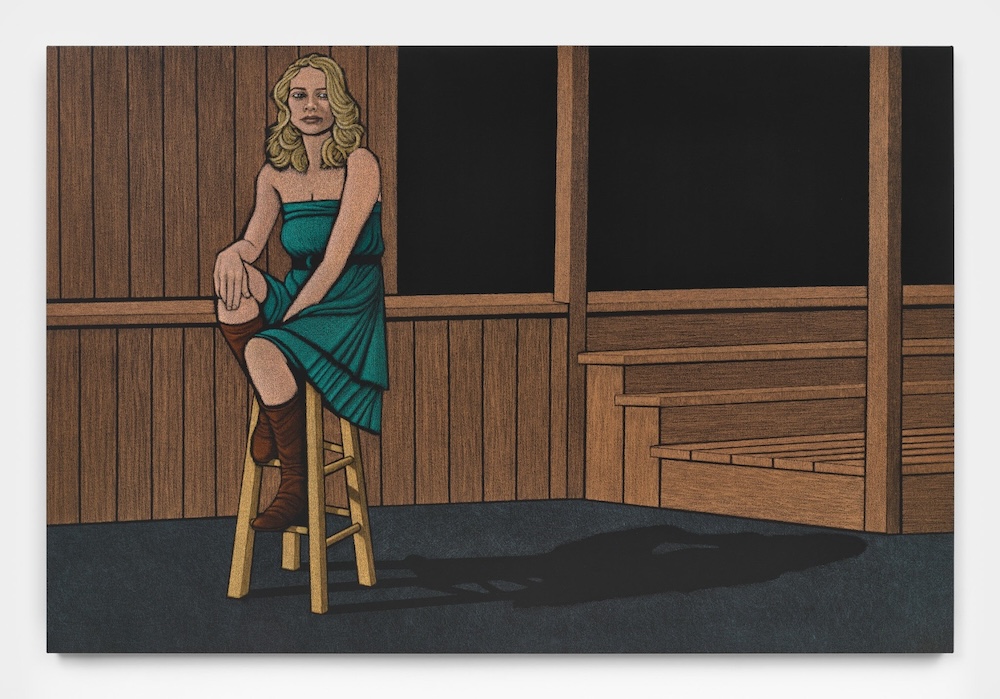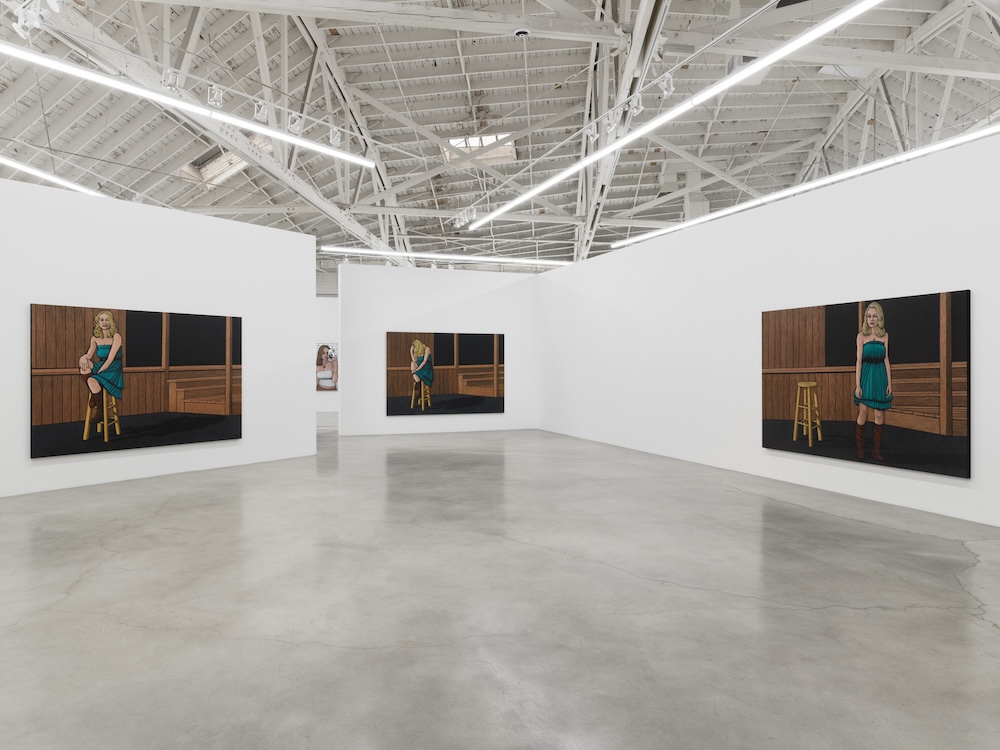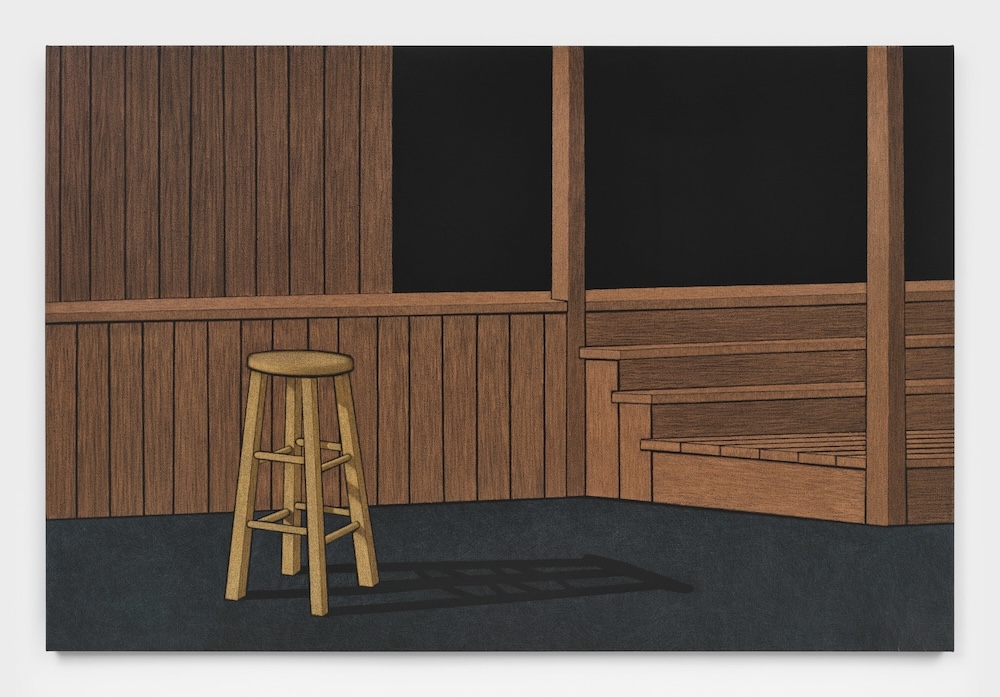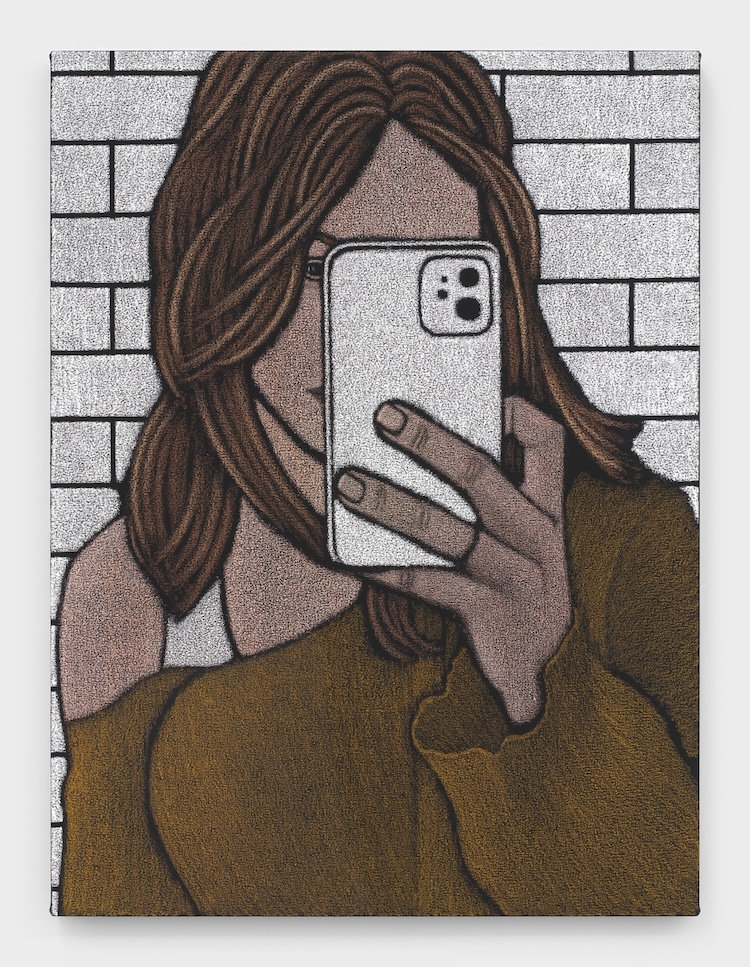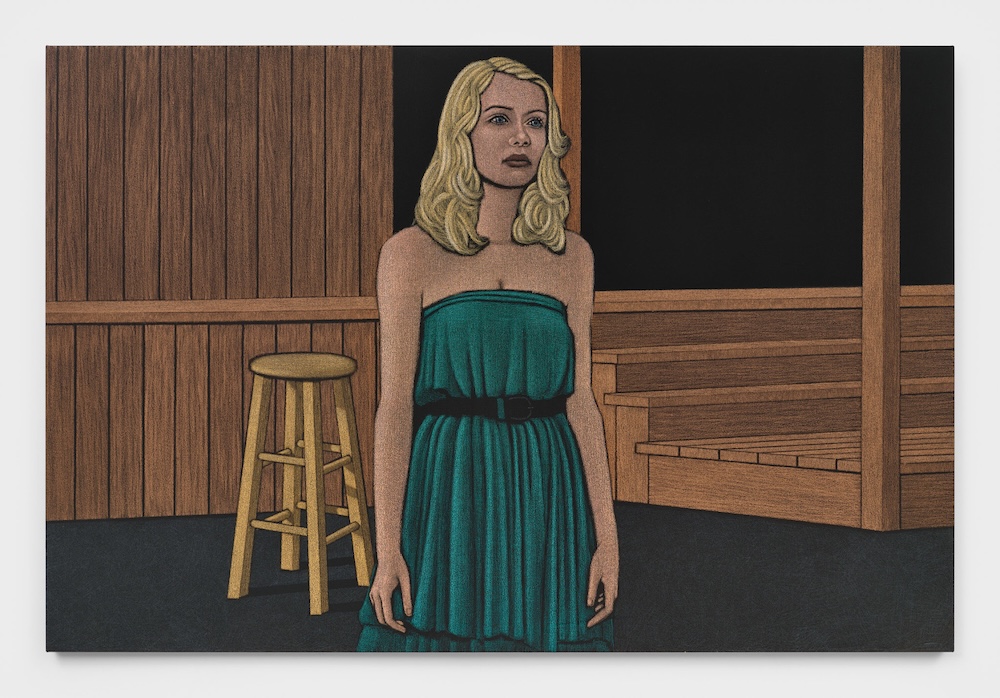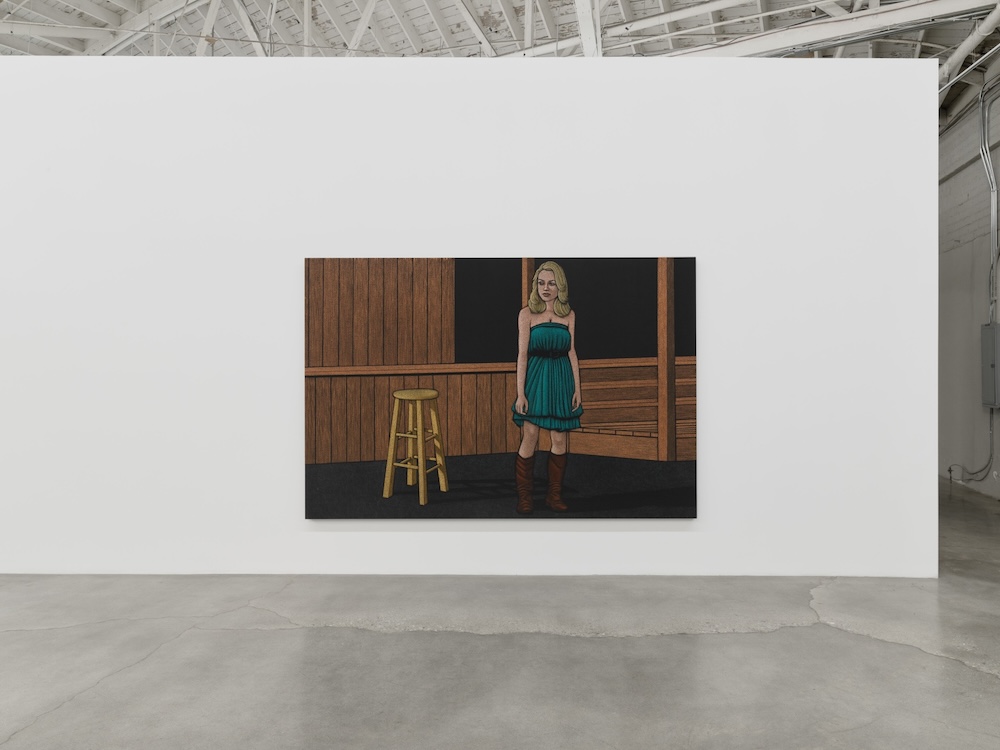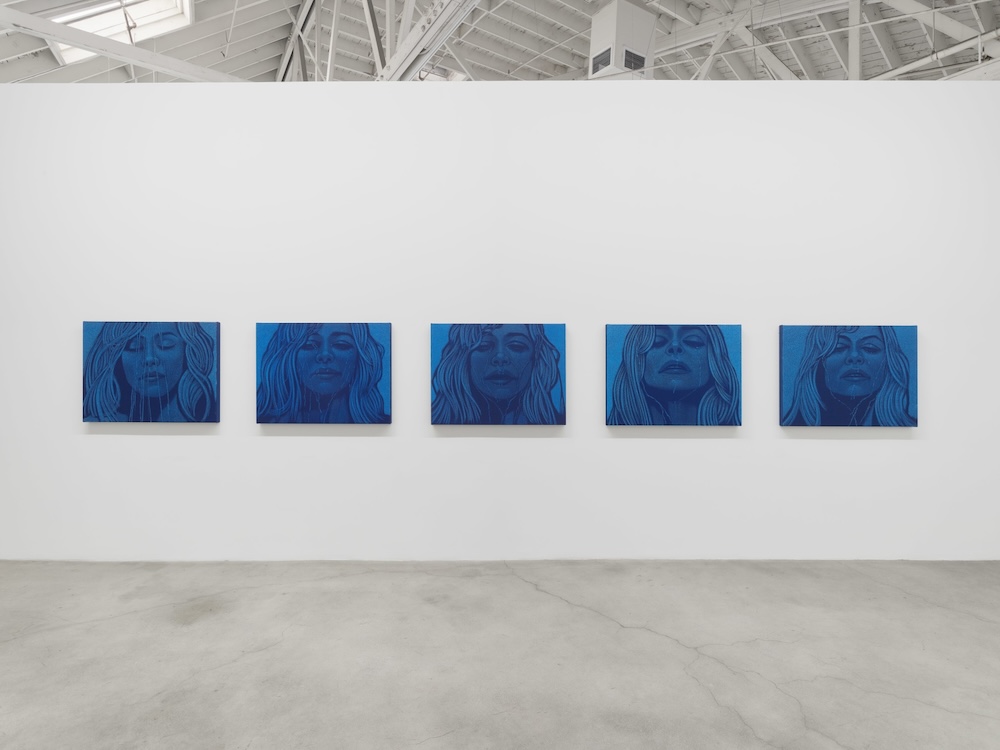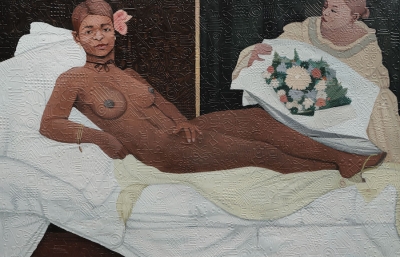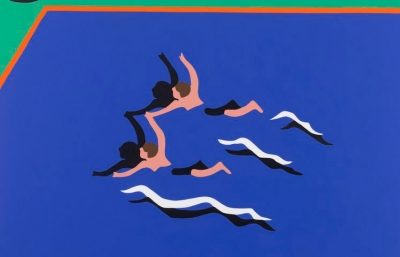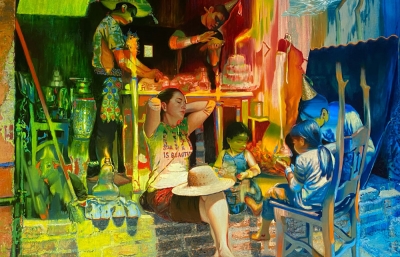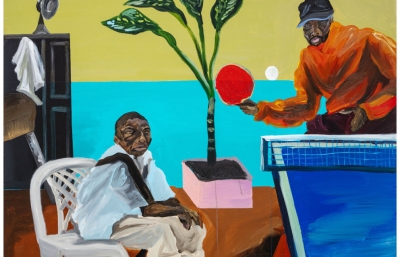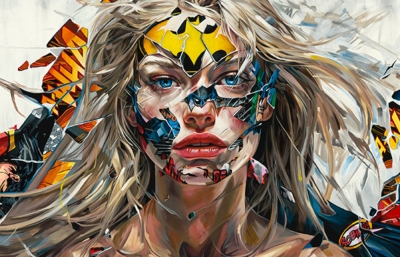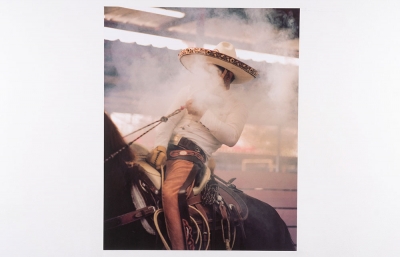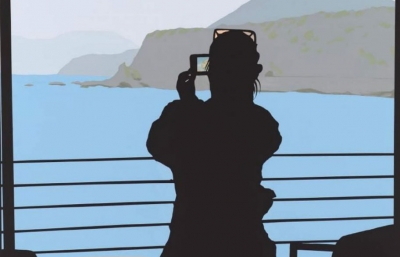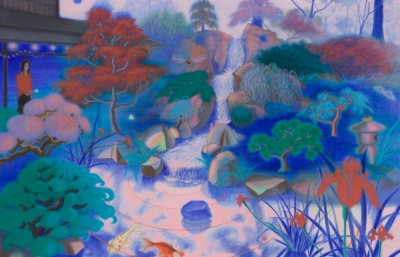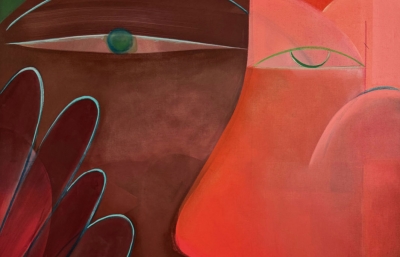Night Gallery is pleased to announce Audition, a presentation of new oil pastel works on canvas by Amy Adler. This is the artist’s first solo exhibition with the gallery.
Amy Adler has long imagined her artwork inhabiting a cinematic universe, as a kind of ongoing animated film in still images. Since the 1990s, Adler has steadily coaxed that world into being, populating it with familiar subjects and enigmatic stories. Her preferred medium is oil pastel on canvas, a process that is intimate, laborious, and—on the massive scale at which she often works —quite physically demanding. The resulting images are narrative paintings through which Adler explores the multiple subject positions and power dynamics involved in the creation of an image.
The works in Audition expand Adler’s universe while simultaneously revealing their roots in her previous lines of inquiry: vulnerability, subject versus authorial agency, and queer desire. Across the five canvases that comprise the show’s titular work, an anonymous young blond woman emotes against a rudimentary set. On each monumental canvas, Adler drew a different still frame from a single scene she’d cut from one of her short films. The decision to return to her own previously authored filmic images places the painted protagonist in the same precarious position as the actor: subject to the whims and judgments of the audience.
These works take on heightened significance in proximity to the 15-foot-long Locker Room. If Adler’s actors are performing across the exhibition’s dozen canvases, then the temporarily shared space of the locker room becomes a backdrop for potential instances of vulnerability, cruelty, sexual tension, and transformation.
The theme of casting continues with Extras, which features a group of stereotypically hunky U.S. Army soldiers. The composition is based on a photograph of background actors relaxing between scenes. Through her act of translation, the image becomes an exploration of the performance of masculinity—in both entertainment and the armed forces—while the work’s subtle homoerotic charge hints that the film in question may not be intended for all audiences.
And what does it mean to cast extras in a painting? Fixing these otherwise interchangeable characters into a permanent display irrevocably elevates their status. Adler continues this inquiry in Ingenue, a conversion of the ubiquitous social-media selfie into a five-foot-tall painting. The image of a teenage girl acting out her own femininity for the camera is not new to Adler, who has reclaimed photographs of herself at a similar age throughout her practice. In Adler's 21st century image, however, the subject has chosen to share her likeness on Instagram with her public; she captures a mundane gesture of documentation in the otherwise private space of the bathroom.
Adler’s work is often imbued with the kind of narrative tension that obscures whether we are witnessing antecedent or aftermath. This is true of Shower Scene, a series of closely cropped images of a woman’s face fractured by rivulets of running water. Another spare but pointed title heightens the anxiety, while Adler’s gradations of blue pastel create the flickering impression of water on a camera lens.
Just as Adler’s work has steadfastly eluded the traditional paradigms of drawing, painting, and photography, this exhibition evinces a similarly slippery engagement with cinema. Here Adler presents us with establishing shots, screen tests, casting calls, and locations. Each cinematic canvas becomes a scene in Adler’s infinite director’s cut. —Jordan Karney Chaim

